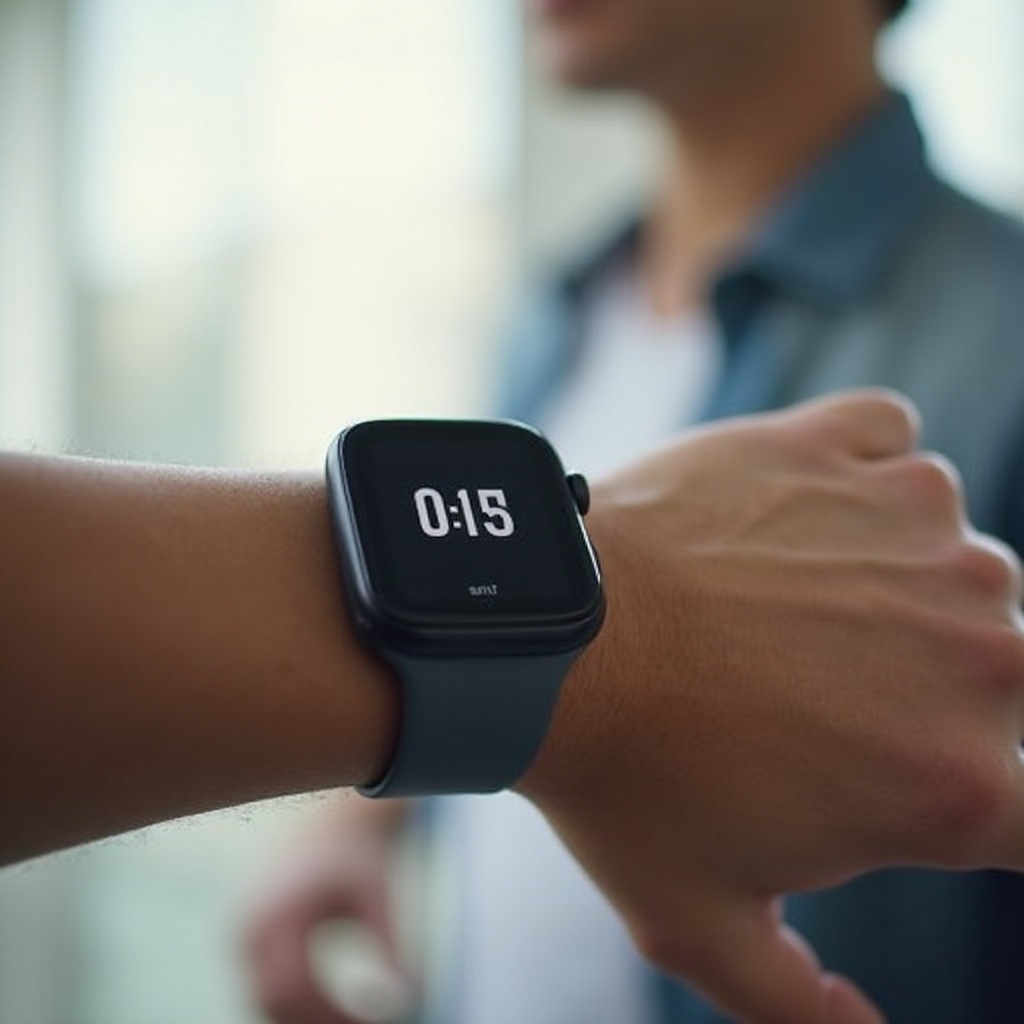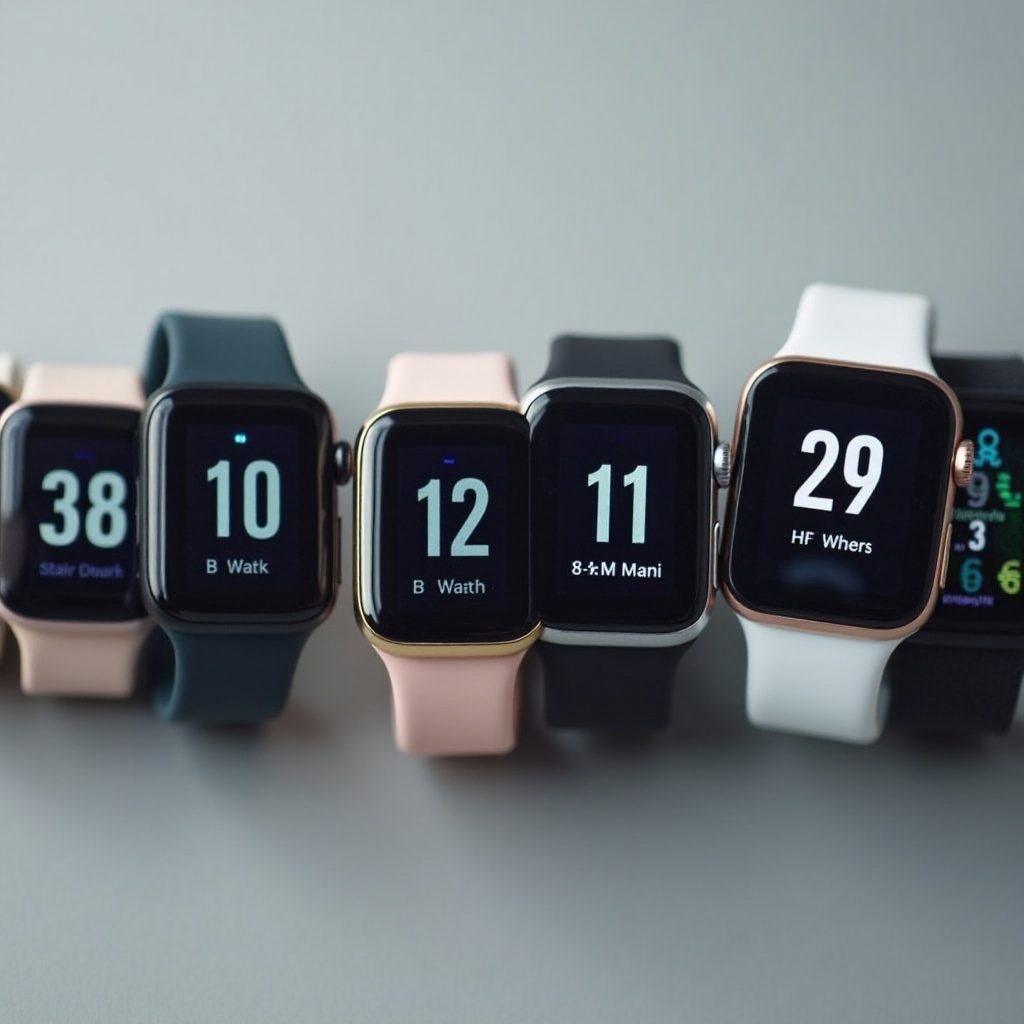Are Smart Watch Steps Accurate? An In-Depth Look at Step Tracking Accuracy
Introduction
Smartwatches have become more than just a fashion statement. They are essential gadgets for monitoring various health metrics, including daily step counts. Step trackers in smartwatches promise to keep you informed about your activity levels, aiming to promote a healthier lifestyle. However, many users wonder, ‘Are smart watch steps accurate?’ This blog explores step tracking technology, its accuracy, and how you can ensure you’re getting precise data from your smartwatch.

How Smartwatch Step Trackers Work
Understanding how step trackers operate helps in assessing their accuracy. Smartwatches use accelerometers, which are sensors detecting motion. These sensors measure the acceleration of your wrist movements, translating them into steps via complex algorithms. Some advanced models incorporate gyroscopes and heart rate monitors to refine data accuracy further. Since these devices are worn on the wrist, they interpret arm swings as steps, which may not always align perfectly with your actual foot movements.
Therefore, the combination of accelerometers, gyroscopes, and sometimes GPS in various smartwatch models attempts to provide a more accurate count of your steps by analyzing movement patterns and filtering out non-step-related motions.
Factors Affecting Step Counting Accuracy
Several factors can impact the precision of step tracking on smartwatches:
- Wearing Position: Wearing your smartwatch too loosely can result in missed steps or inaccurately counted steps due to improper motion detection.
- Activity Type: Step-counting accuracy can vary with different activities. Walking on a treadmill may produce different results compared to strolling outdoors.
- Algorithm Variability: Each brand utilizes unique algorithms to process motion data. This can result in varying accuracy rates among different smartwatch models.
- User Factors: Unique user walking patterns, arm swings, and speeds all influence how effectively a smartwatch tracks steps.
- Software Updates: Regular app and firmware updates can either improve or sometimes disrupt tracking accuracy by modifying the underlying algorithms.
These factors, from the way you wear your smartwatch to the unique algorithms used by each brand, collectively influence how accurately your steps are recorded.

Comparing Step Tracking Accuracy of Popular Smartwatch Brands
Some of the top smartwatch brands like Apple, Fitbit, Samsung, and Garmin are known for their robust tracking features. However, their accuracy can vary:
- Apple Watch: Renowned for its high-tech sensors and refined algorithms, Apple Watch offers impressive step counting accuracy. It uses both motion detection and GPS data to triangulate your steps.
- Fitbit: This brand has been a leader in fitness tracking for years. Their models, incorporating data from heart rate monitors and altimeters, provide reliable step counts but can sometimes overestimate leisurely strolls.
- Samsung Galaxy Watch: Known for its detailed fitness analytics, Samsung’s step tracking is generally accurate, though it may miscount steps during high-intensity workouts.
- Garmin: With a focus on serious fitness enthusiasts and athletes, Garmin watches offer highly accurate step tracking, particularly in outdoor settings with GPS support.
The nuances in algorithms and sensor technologies among these leading brands contribute significantly to the variations in step-count accuracy.

Common Myths and Misconceptions About Step Tracking
Despite technological advancements, several myths persist about step tracking accuracy:
- ‘Smartwatches count all wrist movements as steps’: While many believe this, advanced algorithms and additional sensors now help differentiate between actual walking steps and other wrist motions.
- ‘More expensive watches are always more accurate’: Cost isn’t always a direct indicator of precision. Mid-range models can offer comparable accuracy if equipped with quality sensors and updated software.
- ‘Step counts are exact measurements’: Step data offer insights rather than exact step counts. They serve as a general benchmark to assess activity levels.
Debunking these myths helps users set realistic expectations regarding the data provided by their devices.
Real-World User Experiences
User feedback reveals a blend of satisfaction and curiosity about smartwatch step tracking accuracy. Many users find step counts align reasonably well with their physical activity. However, some express concerns over discrepancies during specific activities like cycling or household chores. Overall, real-world experiences highlight the importance of understanding the context in which a smartwatch is utilized. Consistent software updates and user interface improvements also play a role in how users perceive and benefit from their devices.
Tips to Improve Smartwatch Step Tracking Accuracy
Enhancing the accuracy of your smartwatch step-tracking can be achieved through some practical steps:
- Proper Fit: Ensure your watch is snug on your wrist to allow accurate motion detection.
- Calibration: Regularly calibrating your watch through apps can help adjust the sensors to more accurately reflect your movement patterns.
- Update Software: Keep your smartwatch and its accompanying app updated to benefit from the latest algorithm improvements.
- Activity Tagging: Use the watch’s feature to tag different activities for more precise tracking and analysis.
- Consistency: Wear your watch consistently on the same wrist to give the device robust baseline data to work from.
By following these tips, you can significantly enhance the reliability of step counts from your smartwatch.
Conclusion
Smartwatch step tracking accuracy has seen significant improvements but isn’t infallible. Understanding how trackers work, the factors influencing their accuracy, and ways to enhance precision can help you make the most out of your device. Whether you use it for fitness goals or general activity monitoring, informed usage of step tracking features can contribute effectively to a healthier lifestyle.
Frequently Asked Questions
How do smartwatches measure steps?
Smartwatches use accelerometers, gyroscopes, and sometimes GPS to measure wrist movements, converting these into steps through advanced algorithms.
Are all smartwatches equally accurate?
No, accuracy varies based on the brand, sensor quality, and the proprietary algorithms used by each smartwatch.
Can I improve the accuracy of my smartwatch step tracking?
Yes, ensuring a proper fit, keeping software updated, calibrating the watch, and consistently wearing it on the same wrist can improve accuracy.
